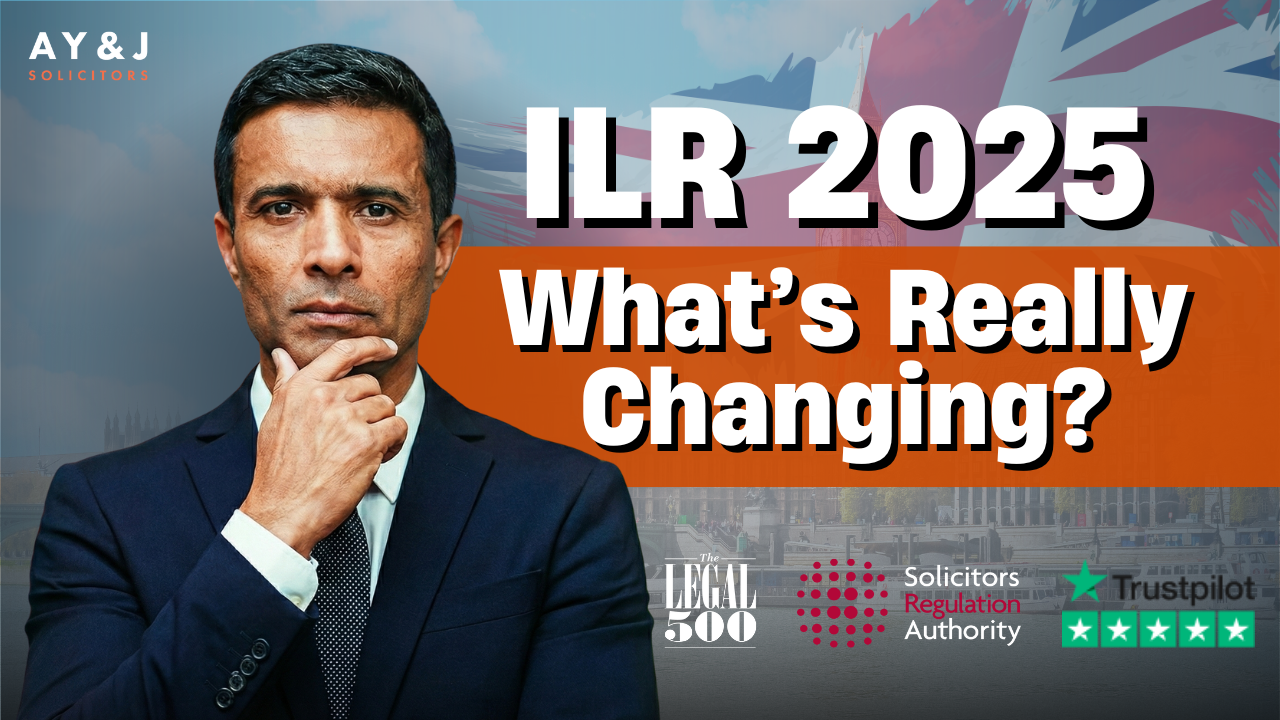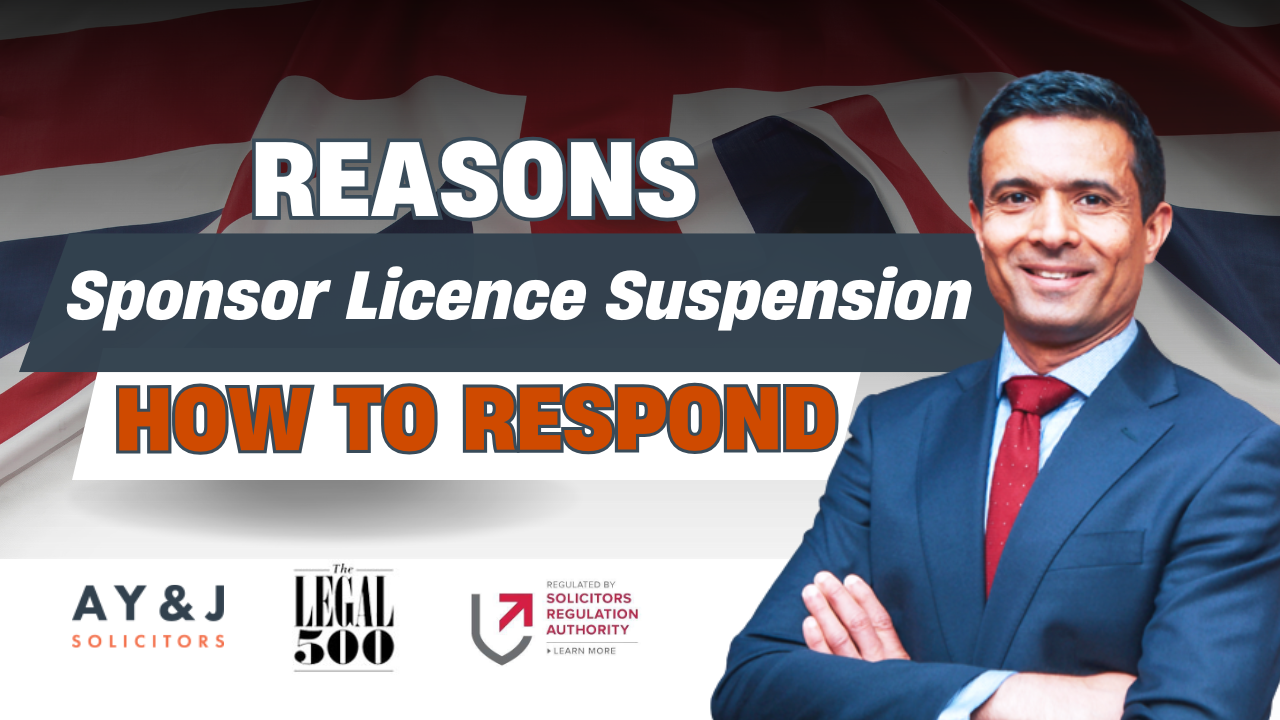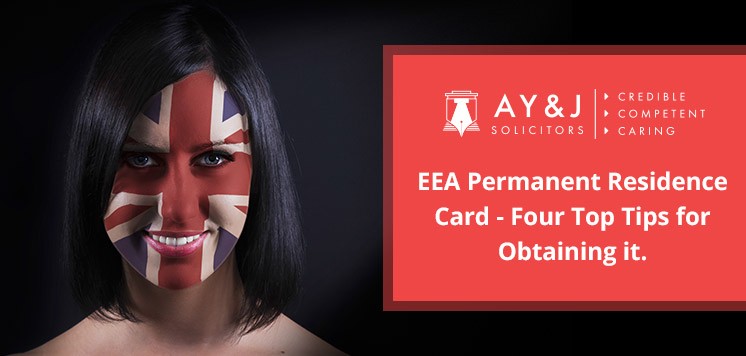Permanent Residence Card Application for EEA Nationals Successful!
On 23 June 2016, the UK voted in a referendum to leave the EU. At present, there are no changes to the rights of residence for EEA nationals and their family members living in the UK, but this may change as the exit process continues.
Unless transitional arrangements are made, the automatic consequence of the UK’s leaving the EU might be that all EU-derived rights of residence would fall away. The government has said that it wants to guarantee the rights of EEA nationals who are already living in the UK after the UK leaves the EU. However, it does not want to do so until it has achieved a reciprocal agreement in relation to the position of British citizens living in other EEA states. It is to be hoped that non-EEA family members (including extended family members) of EEA nationals will be treated the same way. Although permanent residence is a status derived from EU law, it is anticipated that this status (or an equivalent status) will be retained following Brexit. Unfortunately, the position is uncertain.
EEA Residence Card Appeal Succeeds with A Y & J Solicitors
The Advantages of Acquiring a Permanent Residence Card being an EEA National
If you acquire permanent residence, you and your family members are no longer required to be working, self-employed, studying (with comprehensive sickness insurance in place for you) or self-sufficient (with comprehensive sickness insurance in place for you and any family members) to maintain a right of residence in the UK. If you have any children who were born in the UK and are under the age of 18, they will now be able to apply to register immediately as British citizens, and you have full access to the same welfare benefits as British citizens. You and your family member(s) will continue to be able to work or engage in self-employment in the UK without restriction.
A family of two had spent over six months researching the requirements to apply for Permanent Residence (PR). This EEA national and his wife had arrived in the UK over five years ago, but they had struggled to obtain the initial right of residence for the NON-EEA national wife. Applying for PR was a personal challenge due to a past bad experience with the UK Visas and Immigration (UKVI).
Following research on various law firms, the couple arranged a Skype consultation with our firm to ensure the non-EEA national was entitled to apply for PR. She had absences from the UK exceeding six months that were not due to compelling compassionate circumstances that could have been overlooked by UKVI. During the consultation with one of our immigration experts, we identified that not only were the absences a potential issue to fail in such an application but also during the first year of the EEA national’s self-employment activity, his income was very low, and UKVI could question whether the self-employment activities were genuine and effective and not marginal or supplementary.
A Y & J Solicitors Prepared a Strong EEA Permanent Residence Card Application
Following a detailed assessment of their case, our experts were able to find the right way to approach these issues. We knew how to handle their challenges and we earned their confidence in instructing us to deal with their Permanent Residence Application. It was very important for them to secure a PR for the non-EEA national, as their children were residing in America and visiting the USA was currently restrictive.
As part of the PR process, we drafted a comprehensive bespoke checklist to enable them to gather the evidence required to succeed in such an application. Our team spent hours reviewing business and personal bank statements, invoices, and other documents in relation to the self-employment activities covering a period of over five years.
We are pleased that within three months from the date of the PR application, the non-EEA national was granted PR.
Detailed legal representations were prepared to outline the strengths of their case and why PR should be granted despite the issues outlined above.
We are pleased that within three months from the date of the PR application, the non-EEA national was granted PR.
Caution: EEA Nationals May Lose Permanent Residence
EU free movement law provides that you will lose your permanent residence automatically if you leave the UK and do not return for a consecutive period of over two years. This will also apply to any of your family members who have acquired permanent residence. If you will be absent from the UK for long periods on business or holiday, you may wish to carry with you evidence of your continuing residence on your return. This may include documents evidencing property and any bank accounts or utility bills in the UK.
A Y & J Solicitors is a multi-award-winning UK immigration law firm with over 14 years of specialist experience. Based in Central London, we are recognised and recommended by The Legal 500, Chambers Partners authorised by the SRA (Solicitors Regulation Authority). Having successfully assisted more than 5,000 clients, we stand by our ‘In It To Win It’ approach to deliver results with precision and care. For your peace of mind, we are proud to hold a trust rating of 4.9/5, backed by over 1,000 reviews on Trustpilot and Google.
Tips to Choose a Right UK Immigration Lawyer













I know A Y & J Solicitors for many years now and instructed them for various UK immigration matters. But specially I like to talk & thank about my mother’s latest EEA residence permit under ‘Surinder Singh’ route that has been approved in the ‘First instance’. It was a very complex immigration application under EU regulation but with the help of YDVISAS and team, this became a dream come true. I always received a full assurance and a complete hand holding support throughout the application process. I am united with my mother in the UK with the top technical knowledge of EU regulation, relentless efforts and honest – humble approach of A Y & J Solicitors. Saying ‘Thank you’ won’t be enough here, having my mother with me in the UK is a lot more than any words I describe my appreciation with. I highly recommend A Y & J Solicitors to anyone who is looking for professional support in relation to UK immigration including EU regulation / Surinder Singh route.